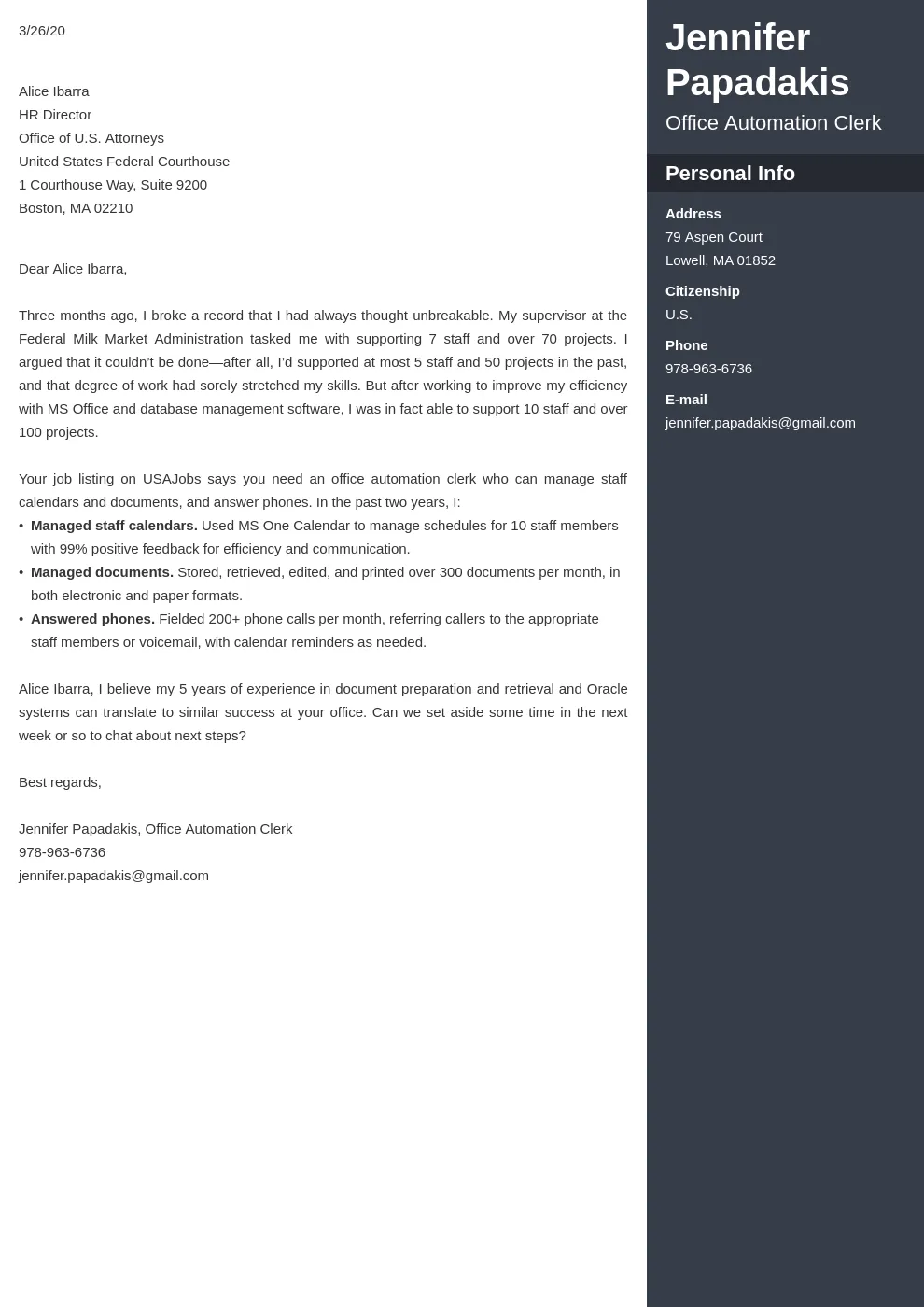Why a Strong Cover Letter Matters for Gov Jobs
In the competitive world of government jobs, a compelling cover letter can be the key to unlocking your dream career. Unlike the private sector, where a resume might sometimes suffice, government applications often place a significant emphasis on the cover letter. It’s your first opportunity to make a strong impression, showcasing your skills, experience, and understanding of the specific job and the governmental agency. A well-crafted cover letter allows you to go beyond the confines of your resume, providing context, demonstrating your personality, and highlighting why you are the perfect fit for the role. It’s your chance to stand out from a pool of potentially hundreds of applicants, demonstrating not only your qualifications but also your genuine interest and understanding of the position.
Understanding the Gov Job Cover Letter
A cover letter for a government job is not simply a formality; it’s a critical tool for securing an interview. It serves as a personalized introduction, allowing you to connect your skills and experience to the specific requirements of the job. Think of it as a marketing document, selling your abilities to the hiring manager. It’s where you can articulate your understanding of the government agency’s mission and how your contributions can help them achieve their goals. A successful cover letter demonstrates that you’ve researched the position and the agency, showing a genuine interest that goes beyond a generic application. This initial impression can set the tone for your entire application process.
Key Differences From Private Sector Letters
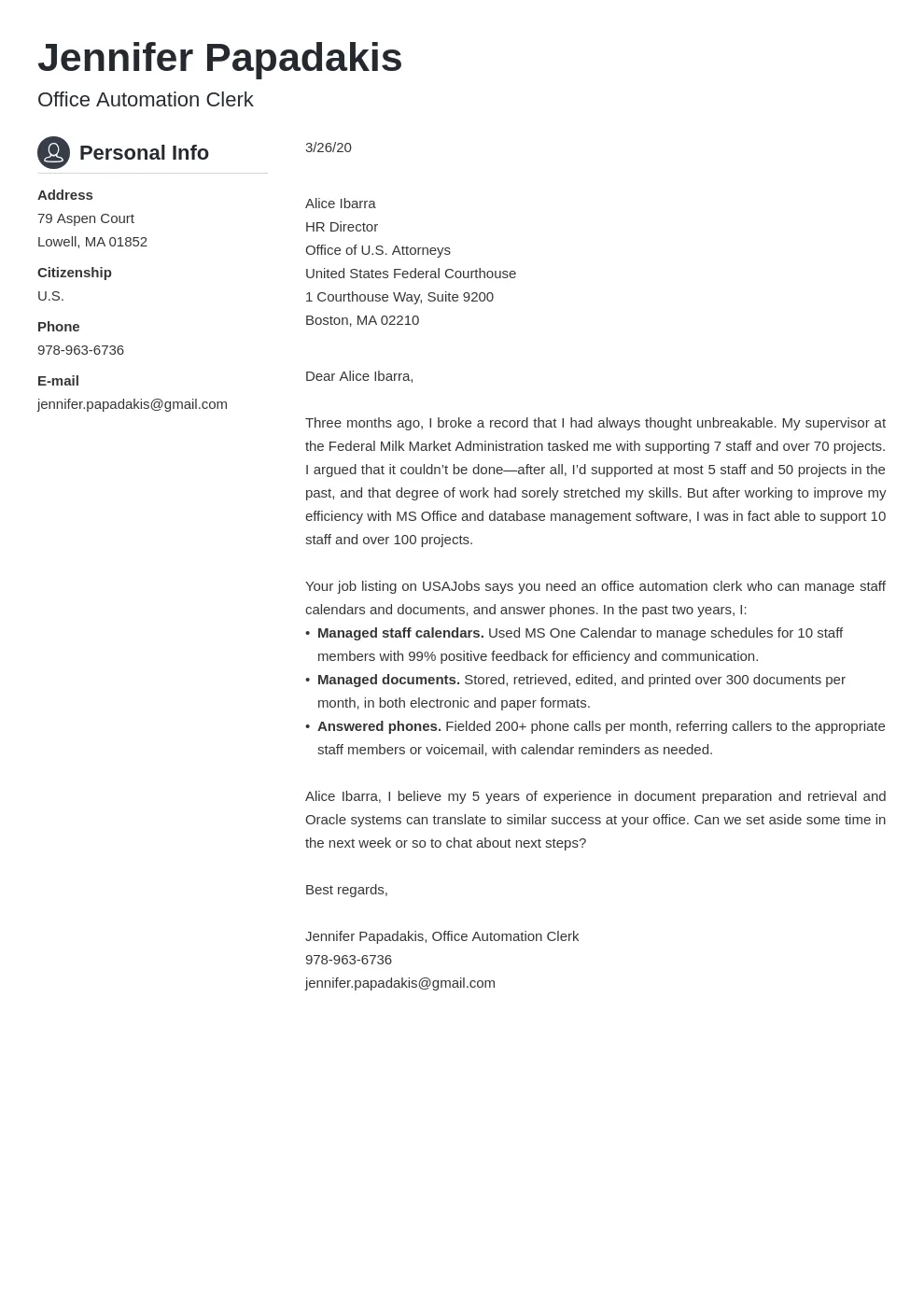
While the core principles of cover letter writing remain consistent, there are crucial differences to consider when applying for government jobs. Government agencies often have specific requirements and expectations. Many government job postings are highly structured and include detailed instructions on what to include. Always adhere to these instructions meticulously. Avoid overly informal language, jargon, or clichés. Focus on demonstrating your understanding of public service values, such as integrity, fairness, and transparency. Government agencies value precision and clarity, so ensure your writing is concise, well-organized, and free of errors. Be prepared to address specific selection criteria that are often listed in the job announcement, and tailor your letter to directly address these requirements. In essence, a government cover letter is about demonstrating how your skills and experience align with the specific needs of the agency and the values of public service.
Researching the Specific Gov Job
Thorough research is paramount when crafting a cover letter for a government job. Begin by carefully reading the job announcement, paying close attention to the duties, qualifications, and desired skills. Identify the key requirements and tailor your letter to address them specifically. Research the government agency itself. Understand its mission, values, and recent initiatives. Visit the agency’s website, read press releases, and review any relevant reports or publications. Demonstrate your knowledge of the agency and its work in your cover letter. This shows your genuine interest and initiative. Use the job description as a roadmap, ensuring that your cover letter clearly aligns your skills and experience with the specific needs of the role. Showing that you have done your homework will impress hiring managers.
Tailoring Your Cover Letter
A generic cover letter is a quick path to the rejection pile. Every government job application requires a tailored approach. Never use a template without substantial revisions. Customize your letter for each position you apply for, ensuring it aligns with the specific requirements outlined in the job announcement. This means modifying your skills, experience, and achievements to directly match the stated needs of the role. Instead of simply listing your qualifications, provide specific examples that demonstrate how you have used your skills to achieve results. Show, don’t just tell. By tailoring your cover letter, you communicate that you’ve taken the time to understand the position and are genuinely interested in the opportunity. This personalization makes your application stand out from the crowd.
Formatting for Gov Applications
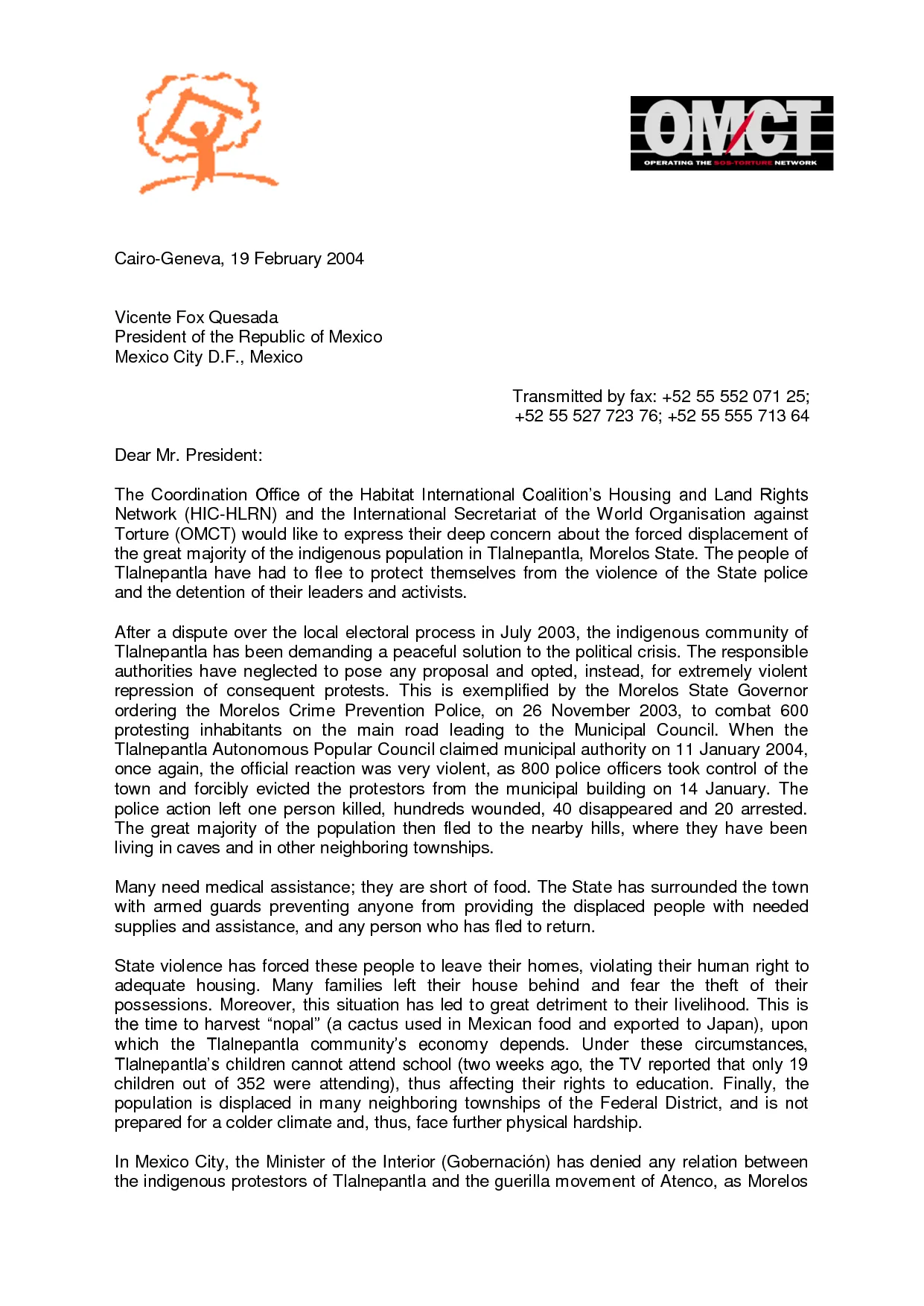
Proper formatting is crucial for government applications, as it demonstrates attention to detail and professionalism. Begin by choosing a clean, easy-to-read font like Times New Roman, Arial, or Calibri. Use a standard font size (11 or 12 points) to ensure readability. Maintain consistent margins (typically 1 inch) on all sides of the document. Keep the layout simple and uncluttered. Government agencies often receive a high volume of applications, so making your letter easy to read is essential. Use single-spacing within paragraphs and double-spacing between paragraphs. Organize your content logically, with clear headings and subheadings. Avoid excessive use of bolding, italics, or underlining, as these can distract from the content. Ensure that your letter is free of any formatting inconsistencies or errors. Pay attention to any specific formatting guidelines provided in the job announcement. Adhering to these standards shows that you are organized and pay close attention to detail.
Header and Contact Information
Your header should include your full name, address, phone number, and email address. Ensure that your contact information is current and professional. Use a professional email address; avoid using nicknames or informal language. Place the header at the top of the document, typically on the left side. Directly below your contact information, include the date and, if required, the hiring manager’s name and title. If the job announcement provides a specific address or contact information, use it. If you don’t know the hiring manager’s name, research the agency or use a generic greeting such as ‘Hiring Manager’ or ‘Recruiting Team.’ This section ensures that the hiring manager knows how to reach you and provides a professional first impression.
Greeting and Salutation
The greeting sets the tone for your cover letter. Start with a formal greeting, such as ‘Dear Mr./Ms./Mx. [Last Name]’ if you know the hiring manager’s name. If the name is unavailable, use a professional salutation, such as ‘Dear Hiring Manager’ or ‘To the Recruiting Team.’ Avoid informal greetings such as ‘Hi’ or ‘Hello.’ The salutation should be followed by a colon. At the end of your cover letter, use a professional closing, such as ‘Sincerely,’ ‘Respectfully,’ or ‘Best regards,’ followed by your typed name. The greeting and salutation are critical for establishing a professional and respectful tone throughout the application process, and they demonstrate your understanding of workplace etiquette.
Highlighting Your Skills and Experience

The body of your cover letter is where you connect your skills and experience to the job requirements. Focus on the most relevant qualifications and achievements that align with the position. Avoid simply restating your resume. Instead, expand on your accomplishments and provide context. Explain how your skills and experience have prepared you for the role. Use action verbs to describe your responsibilities and accomplishments. This helps to create a dynamic and engaging narrative. Back up your claims with specific examples. Quantify your achievements whenever possible. For instance, instead of saying ‘Managed a team,’ say ‘Managed a team of 10 employees, resulting in a 15% increase in productivity.’ Use keywords from the job description to show the hiring manager you have what they are looking for.
Matching Your Skills to the Job Description
Carefully review the job description and identify the key skills and qualifications the agency is seeking. Then, demonstrate how your skills and experience match those requirements. Highlight specific examples from your work history, education, or volunteer experiences that illustrate your abilities. Use the same language and keywords from the job description in your cover letter. This helps the hiring manager quickly identify that you possess the necessary skills. Provide concrete evidence of your abilities. For example, if the job description requires strong communication skills, describe a situation where you successfully communicated complex information to a diverse audience. If teamwork is essential, detail a project where you collaborated effectively with a team to achieve a common goal. Focus on the skills and experiences that are most relevant to the specific job.
Quantifying Your Achievements
Whenever possible, quantify your achievements to demonstrate the impact you’ve made in previous roles. Use numbers, percentages, and data to showcase your accomplishments. For example, instead of saying ‘Improved customer service,’ say ‘Improved customer service scores by 20% through implementation of a new training program.’ Quantifiable achievements provide concrete evidence of your abilities. They also make your accomplishments more memorable and impressive. Think about how your contributions have benefited previous employers or organizations. What results did you achieve? Did you increase revenue, reduce costs, improve efficiency, or enhance customer satisfaction? Use these metrics to demonstrate your value to the hiring manager. Highlighting your achievements with numbers will have a lasting impact.
Demonstrating Knowledge of Government
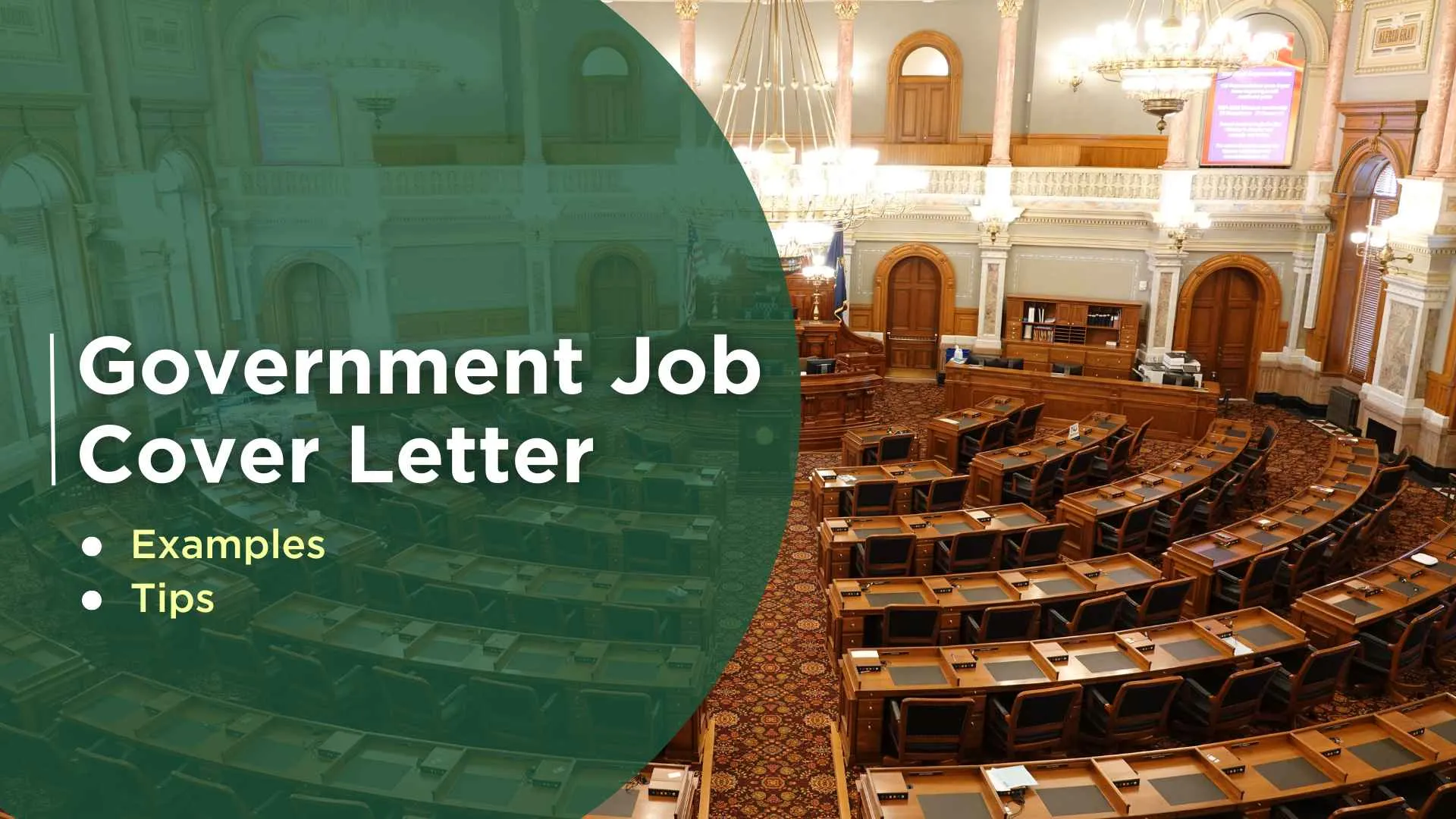
Government jobs often require an understanding of public service principles and the agency’s mission. In your cover letter, demonstrate your knowledge of government by referencing the agency’s work, mission, and values. Explain how your experience aligns with these principles. Discuss your understanding of relevant laws, regulations, or policies. If possible, mention specific programs or initiatives the agency is involved in. Show that you’ve researched the agency and have a genuine interest in its work. This might include discussing your interest in a particular area or a specific program the agency manages. This shows a commitment to public service and that you have the motivation to succeed in this role. This shows that you are a good fit for the agency.
Writing a Compelling Body Paragraph
The body paragraphs of your cover letter are where you connect your skills and experience to the specific job requirements. Each paragraph should focus on a specific aspect of your qualifications and achievements. Start each paragraph with a clear topic sentence that introduces the main idea. Then, provide supporting details, such as specific examples, quantifiable results, and relevant skills. Use action verbs to describe your accomplishments. For instance, instead of saying ‘Responsible for,’ say ‘Managed,’ ‘Led,’ ‘Developed,’ or ‘Implemented.’ Keep your paragraphs concise and easy to read. Use strong, active language to create a compelling narrative. Make sure each paragraph contributes to a cohesive and persuasive argument for why you are the best candidate for the job. Provide relevant details but keep each paragraph focused and on point.
Show, Don’t Just Tell
Avoid making general statements about your skills and abilities. Instead, show the hiring manager what you’ve done by providing specific examples. Instead of saying ‘I am a good communicator,’ describe a situation where you effectively communicated complex information to a diverse audience. If the job requires problem-solving skills, describe a challenging problem you solved and the steps you took to find a solution. Whenever possible, use the STAR method (Situation, Task, Action, Result) to structure your examples. This method allows you to provide a clear, concise, and compelling narrative of your accomplishments. The STAR method is an effective way to illustrate your skills and demonstrate the impact you’ve made. This will help you show that you are a good fit for the role.
Providing Specific Examples
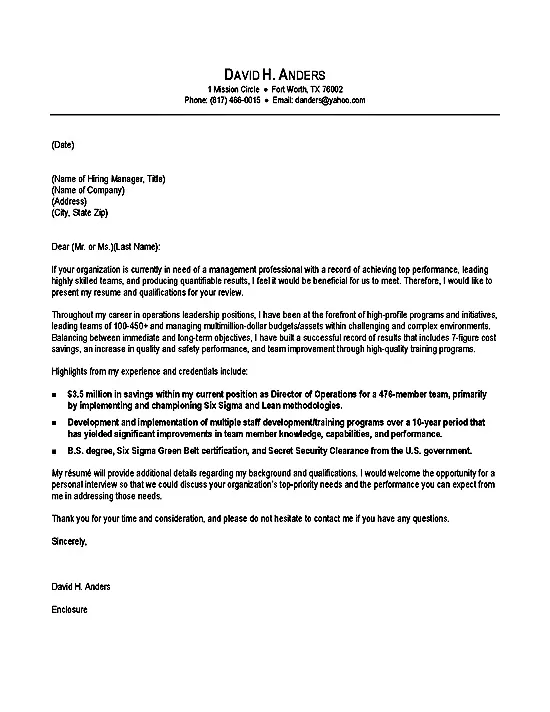
Specific examples are the cornerstone of a successful cover letter. They provide concrete evidence of your skills and achievements. Choose examples that are relevant to the job requirements and highlight your most valuable qualifications. When providing examples, be as detailed as possible. Describe the situation or context, the task you were assigned, the actions you took, and the results you achieved. Quantify your results whenever possible. Include numbers, percentages, or data to demonstrate the impact of your actions. The more specific your examples are, the more convincing your cover letter will be. Consider the specific challenges the agency faces, and use examples to show how you have addressed similar challenges in the past. Choose examples that align with the needs of the job, and provide plenty of detail.
Avoiding Common Mistakes
Many common mistakes can undermine your cover letter and jeopardize your chances of getting an interview. Avoid these pitfalls to increase your success. Make sure to double-check for any formatting errors. Ensure that the letter is easy to read and follows the instructions of the job description. Be sure to tailor your letter to each individual job to make it clear you are the right fit. You have to make sure your cover letter is unique. Not following the specific instructions in the job posting is a sure way to land in the ’no’ pile. Make sure that you pay close attention to detail.
Generic Language
Avoid using generic language, clichés, and buzzwords. These phrases often lack substance and make your cover letter sound impersonal. Instead of saying ‘I am a team player,’ provide a specific example of how you collaborated with a team to achieve a goal. Steer clear of phrases like ‘hardworking,’ ‘results-oriented,’ or ‘detail-oriented.’ Instead, demonstrate these qualities through your examples. Use strong, active verbs to describe your accomplishments, and focus on what you have achieved. A well-written cover letter should sound unique and highlight the best of your qualities. This will help set you apart from the other applicants.
Typos and Grammatical Errors
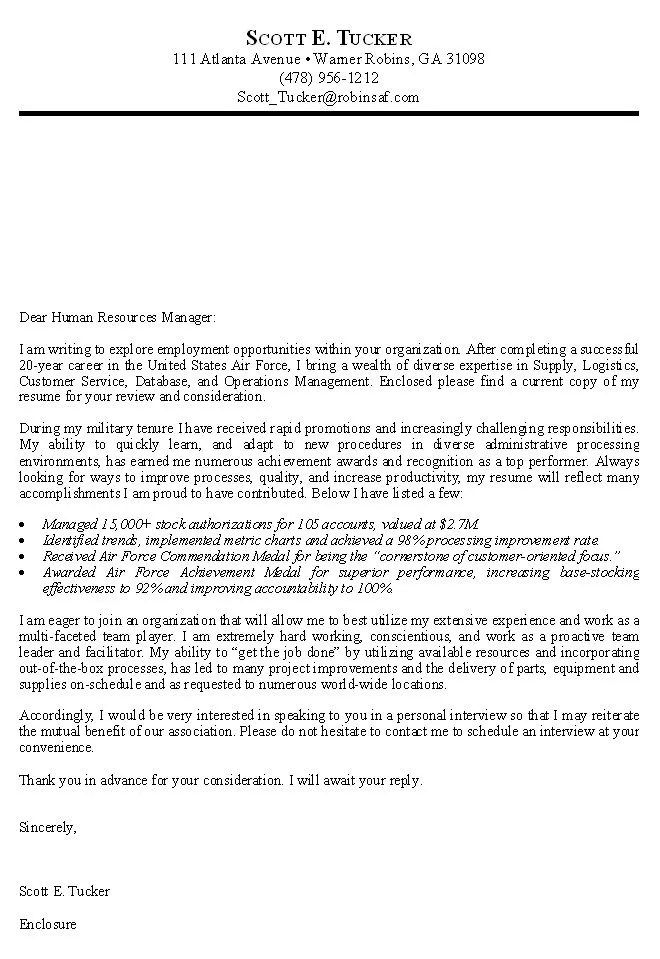
Typos and grammatical errors can create a negative impression and damage your credibility. Proofread your cover letter carefully to ensure it is free of errors. Check for spelling mistakes, grammatical errors, punctuation errors, and formatting inconsistencies. Use a spell checker and grammar checker, but don’t rely on them entirely. Proofread the letter yourself. Read the cover letter aloud. This can help you catch errors that you might miss when reading silently. Ask a friend, family member, or career advisor to review your cover letter. A fresh pair of eyes can often catch errors that you might overlook. A clean and error-free cover letter demonstrates attention to detail and professionalism.
Not Following Instructions
Government job postings often include specific instructions for submitting applications. It’s crucial to follow these instructions carefully. If the job posting asks for a specific format, font, or length, adhere to those requirements. If it asks for specific information or attachments, make sure you include them. Not following instructions demonstrates a lack of attention to detail and may lead to your application being rejected. Carefully review the job posting before submitting your application. Make a checklist of all the required materials and instructions. Ensure that you have included everything and have followed all the guidelines. Attention to detail is crucial when applying for a government job.
Closing Your Cover Letter
The closing of your cover letter should leave a lasting positive impression. Express your interest in the position and reiterate your enthusiasm for the opportunity. Thank the hiring manager for their time and consideration. State your availability for an interview and how they can contact you. Use a professional closing, such as ‘Sincerely,’ ‘Respectfully,’ or ‘Best regards,’ followed by your typed name. A strong closing statement can encourage the hiring manager to call you in for an interview. This will leave the best impression on the hiring manager and the agency.
Expressing Interest and Next Steps
In your closing paragraph, clearly state your interest in the position. Reiterate your enthusiasm for the opportunity and express your desire to contribute to the agency’s mission. Thank the hiring manager for their time and consideration. State your availability for an interview and provide your contact information. You can also mention that you look forward to discussing your qualifications in more detail. Keep the closing paragraph concise and professional. End your letter with a call to action. This shows that you are genuinely interested in the opportunity and ready to move forward with the application process.
Proofreading and Editing
Before submitting your cover letter, proofread it carefully to ensure it is free of errors. Check for any spelling mistakes, grammatical errors, or formatting inconsistencies. Read the cover letter aloud. This can help you catch errors that you might miss when reading silently. Ask a friend, family member, or career advisor to review your cover letter. A fresh pair of eyes can often catch errors that you might overlook. Ensure that the language is clear, concise, and professional. A polished cover letter demonstrates attention to detail and professionalism. A final proofread is critical for ensuring the best impression.
